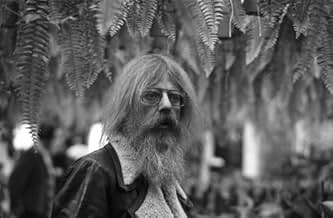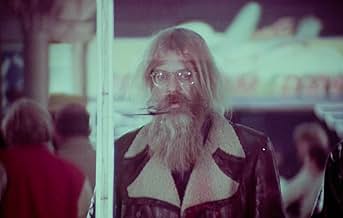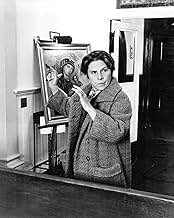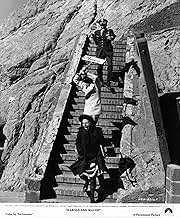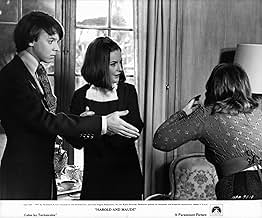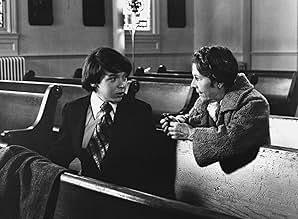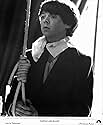Young, rich, and obsessed with death, Harold finds himself changed forever when he meets lively septuagenarian Maude at a funeral.Young, rich, and obsessed with death, Harold finds himself changed forever when he meets lively septuagenarian Maude at a funeral.Young, rich, and obsessed with death, Harold finds himself changed forever when he meets lively septuagenarian Maude at a funeral.
- Nominated for 1 BAFTA Award
- 3 wins & 3 nominations total
Charles Tyner
- Uncle Victor
- (as Bill Durham)
Tom Skerritt
- Motorcycle Officer
- (as M. Borman)
Ray K. Goman
- Police Officer
- (as Ray Goman)
Gordon De Vol
- Police Officer
- (as Gordon DeVol)
Sonia Sorel
- Head Nurse
- (as Sonia Sorrell)
- Director
- Writer
- All cast & crew
- Production, box office & more at IMDbPro
7.885.1K
1
2
3
4
5
6
7
8
9
10
Featured reviews
A 'tour de force' of a film and one of Hal Ashby's best films
'Harold & Maude' is one of those 'sleeper' films that just seems to resonate that bit more with every passing year. Harold, played by the criminally under-utilized Bud Cort, is the quintessential disaffected rich kid wanting to find some meaning in a vacuous life who hooks up with the devil-may-care Maude through their mutual love of attending funerals (Joyce's word 'fun-for-all' springs readily to mind in those scenes). There is plenty to love about this film, the slower pace and the lampooning of easy targets, the 'gung-ho' military uncle and the fetishist priest for example. Here is a film that really stands up well to repeated viewings.
harold and maude where have you been all my life.
can you believe i am 21 years old and only recently saw this film. i had heard chatters about it but never followed through...until a few days ago! and wow! how can this film have been made in 1971, it makes no sense, and i know that the 70s was a particularly strong period for American cinema but this film feels like it could have come from last week! perfect performances, the music by the former cat stevens was great, and the quirk of the storyline and dialogue was likable without being alienating. there were just little hidden things that one could take for face value but if you looked further you'd see a greater substance. i loved this film. i loved this film. i loved this film.
A classic.
This art house favorite is a timeless classic and recommended viewing for all post-Catcher In the Rye teenagers. To modern viewers, the Ruth Gordon creation of Maude probably seems trite, but her Maude was fresh, original and daring in 1970 and the pre-Sophie's Choice twist in her history that Harold discovers was likewise unanticipated by early viewers. Unfortunately, Ruth Gordon went on to recreate this character in lesser films throughout that decade and the character of the eccentric old lady has become rather shopworn.
The Cat Stevens soundtrack is probably one of the most effective use of pop music in film ever.
The Cat Stevens soundtrack is probably one of the most effective use of pop music in film ever.
The reason movies exist!
I only saw this film quite recently but it hopped straight to my number one film of all time. It is beautiful. Bud Cort is charming as Harold and Ruth Gordon - dare I say cute? As Maude. If I look like her when I'm eighty I'll be out there nicking cars and fluttering my eyelashes at policemen too! Maude wrenches Harold free from his morbid and lonely existence to show him how lush and amazing the world can be and he emerges from his experiences a happy man. This is definitely one of the films that (along with say, Fight Club, American Beauty and The Rocky Horror Picture Show) show you can be who you want to be, and you needn't let anyone oppress you. It's brilliant. Everyone should know a Maude. It has inspired me to buy a banjo and play Cat Stevens songs.
I loved this!
I want to BE Maude when I am older. Ironically, I have never seen a movie that was so full of life and joy. There are many little things in this movie, little details and gags, that increase the movie's replayability. The acting is amazing. Ruth Gordon and Bud Cort have wonderful chemistry,which is a tribute to the their acting ability, as well as the tight writing and solid direction. I was sad that this movie did not garner more recognition than it did when it was released. I am also disappointed that Bud Cort has not starred in more things since this movie. Oh well. This is a good Hal Ashby movie to start with, but if you get a chance you should watch as many as possible. They are quirky, thoughtful and wonderful. "Harold and Maude" is a paean to life and love, even if it's in the weirdest places.
Did you know
- GoofsWhen Maude pulls the banjo out of a cabinet, you see the reflection of crew and lights.
- ConnectionsEdited into The Kid Stays in the Picture (2002)
Details
- Release date
- Country of origin
- Language
- Also known as
- Enséñame a vivir
- Filming locations
- 10 Stacey Court, Hillsborough, California, USA(Chasen Family mansion)
- Production company
- See more company credits at IMDbPro
Box office
- Budget
- $1,200,000 (estimated)
- Gross worldwide
- $4,535
Contribute to this page
Suggest an edit or add missing content


![Harold and Maude: The Criterion Collection [Blu-Ray]](https://m.media-amazon.com/images/M/MV5BMTMyMzU1YjgtMDhkYS00NzlkLWFjNzgtMGQwNjEwMjdjYTAyXkEyXkFqcGdeQXVyNzU1NzE3NTg@._V1_QL75_UX500_CR0)

